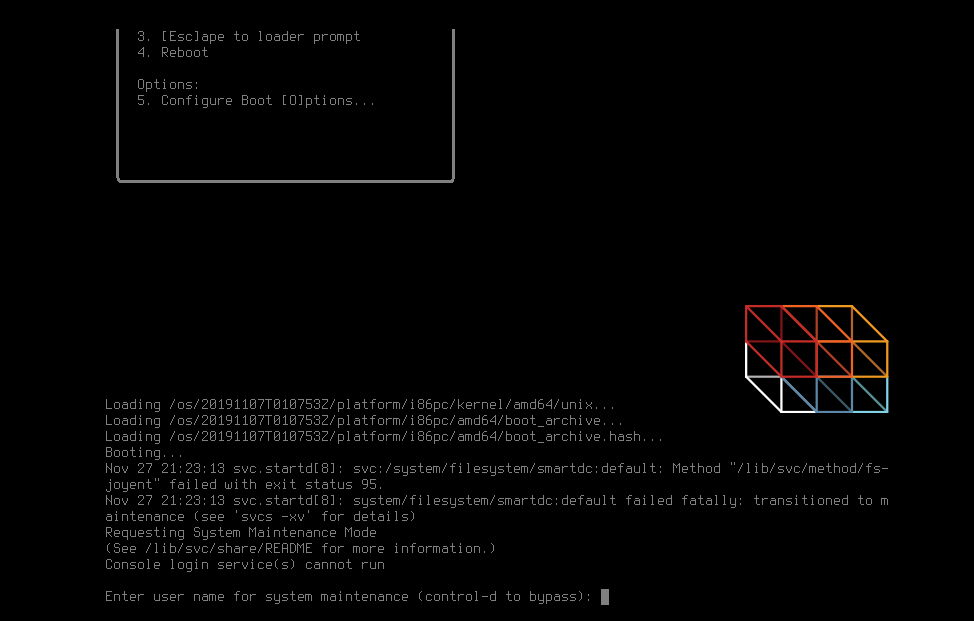I’ll setup a jail dedicated to run bhyve vms , for jail creation I’ll use bastillebsd
Install bastillebsd to create and manage jails.
# pkg install bastillebsd
Setup bastillebsd
Follow the getting started guide at https://bastillebsd.org/getting-started/
I’m using zfs so /usr/local/etc/bastille/bastille.conf I must edit bastille.conf (this must be done before bootstraping a release).
I used this on bastille.conf.
bastille_zfs_enable="YES"
bastille_zfs_zpool="zroot"
Create a set of rules to allow to run bhyve inside a jail edit /etc/devfs.rules, create it if does not exists.
[devfs_rules_bhyve_jail=25]
add include $devfsrules_jail
add path vmm unhide
add path vmm/* unhide
add path tap* unhide
add path nmdm* unhide
Create a new jail that will be use these rules.
sudo bastille create --vnet test-bhyve 12.2-RELEASE 192.168.1.225 em0
Modify test-bhyve jail.conf for this jail:
sudo bastille edit test-bhyve
Now add
allow.vmm;
So the jail.conf will look like:
test-bhyve {
devfs_ruleset =25;
enforce_statfs = 2;
exec.clean;
exec.consolelog = /var/log/bastille/test-bhyve_console.log;
exec.start = '/bin/sh /etc/rc';
exec.stop = '/bin/sh /etc/rc.shutdown';
host.hostname = test-bhyve;
mount.devfs;
mount.fstab = /usr/local/bastille/jails/test-bhyve/fstab;
path = /usr/local/bastille/jails/test-bhyve/root;
securelevel = 2;
allow.vmm;
allow.raw_sockets;
vnet;
vnet.interface = e0b_bastille0;
exec.prestart += "jib addm bastille0 em0";
exec.poststop += "jib destroy bastille0";
}
~
Load the required modules:
kldload vmm
kldload nmdm
Start test-bhyve jail
sudo bastille start test-bhyve
Go inside the new jail
sudo bastille console test-bhyve
Now install vm-bhyve inside the jail follow the vm-bhyve setup at https://github.com/churchers/vm-bhyve
pkg install vm-bhyve
sysrc vm_enable="YES"
mkdir /vms
sysrc vm_dir="/vms"
vm init
cp /usr/local/share/examples/vm-bhyve/* /vms/.templates/
vm switch create public
vm switch add public vtnet0
vm iso https://download.freebsd.org/ftp/releases/ISO-IMAGES/12.2/FreeBSD-12.2-RELEASE-amd64-bootonly.iso
vm create test
vm install -f test FreeBSD-12.2-RELEASE-amd64-bootonly.iso
by default a vm-bhyve vm has 256mb, if you need more you will need to run
vm config test
And configure how much RAM do you need.
Issues
If you are going to use dhcp on the vm, you will need to configure the interface to
use SYNCDHCP.
According to this post using SYNCDHCP works, but we need to reboot the vm first.
This gives me an interface named vnet0 in my jails that i can then configure through the jail’s rc.conf. for some reason SYNCDHCP works but not DHCP in the guest rc.conf.
